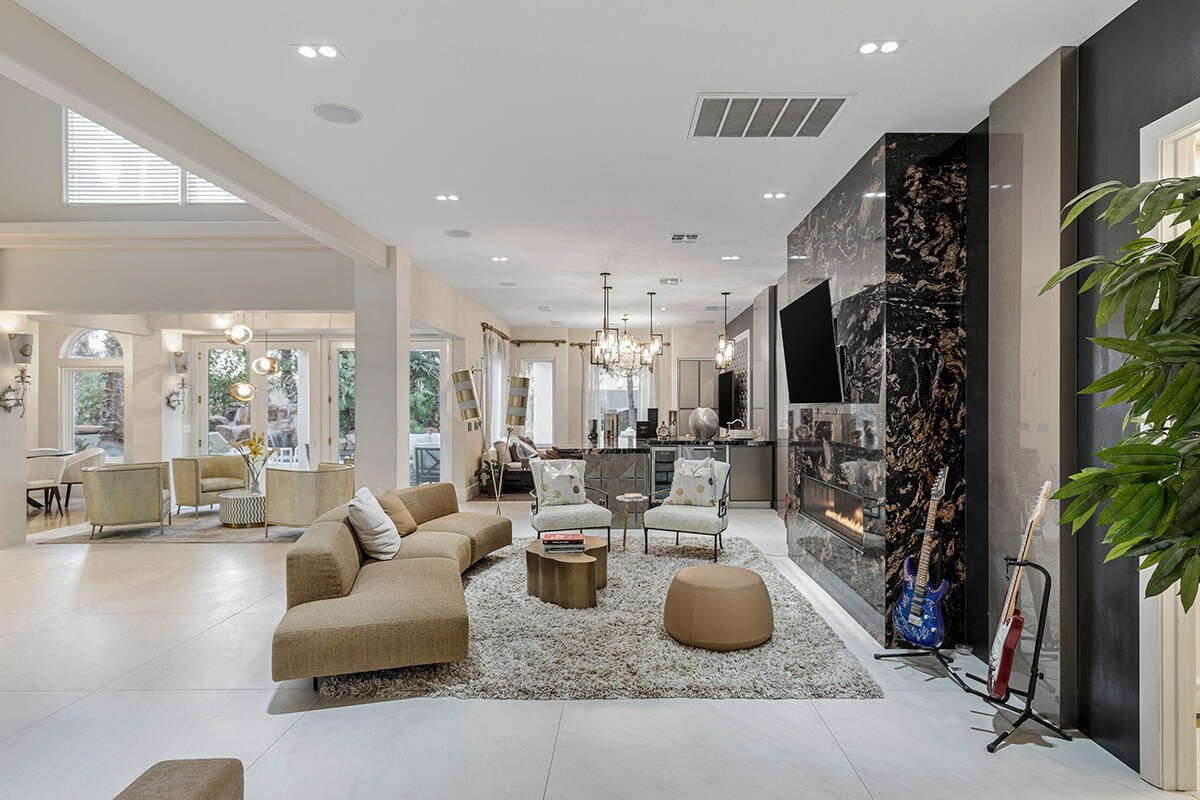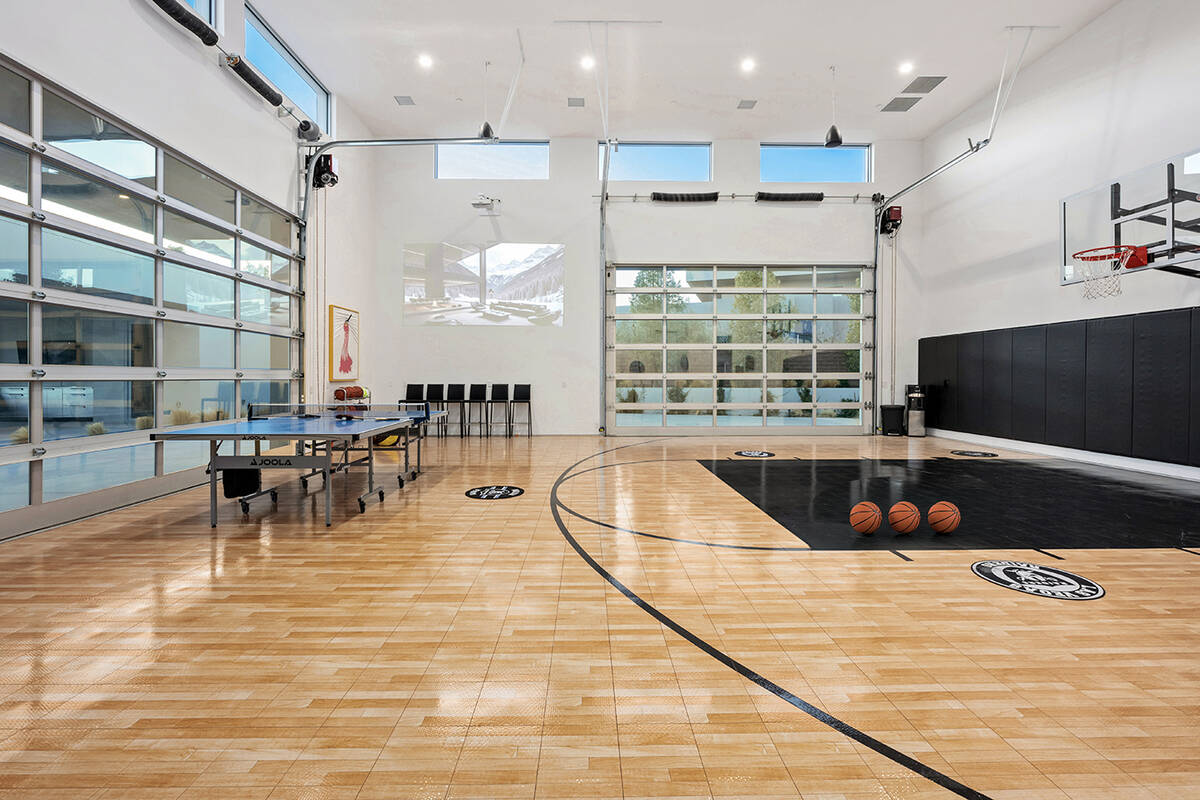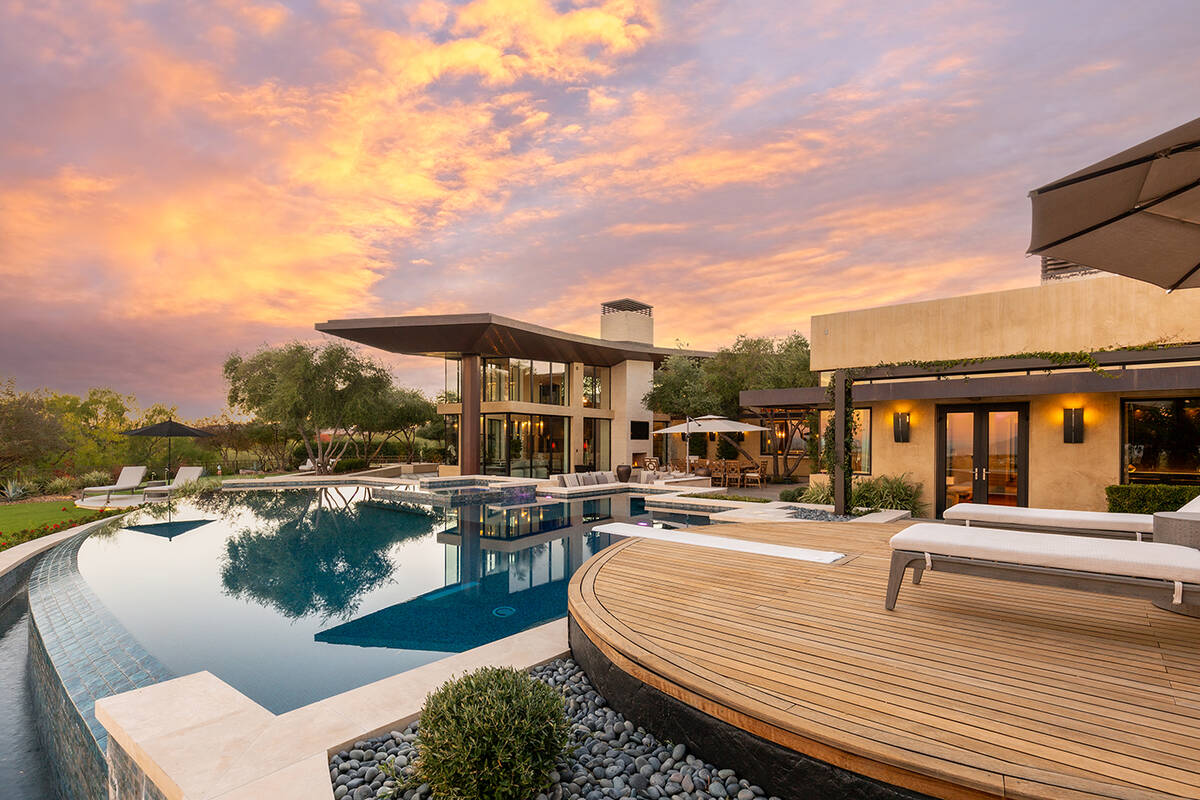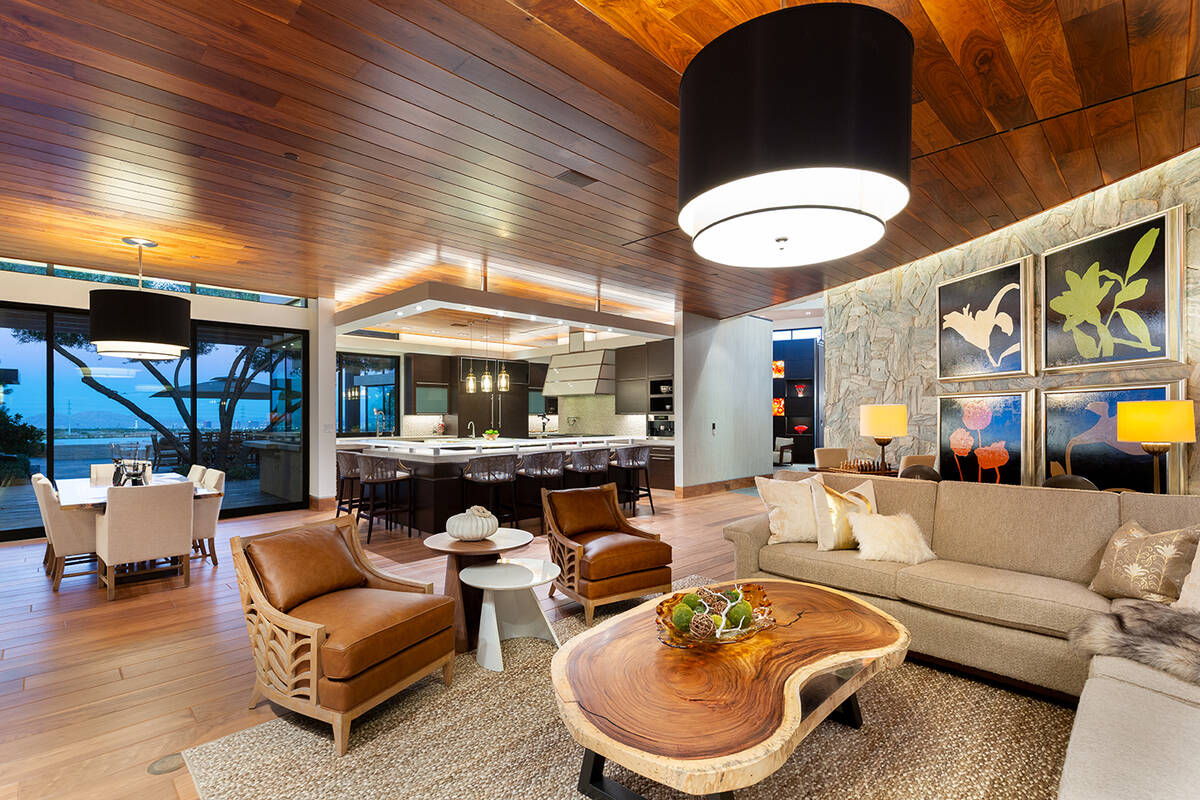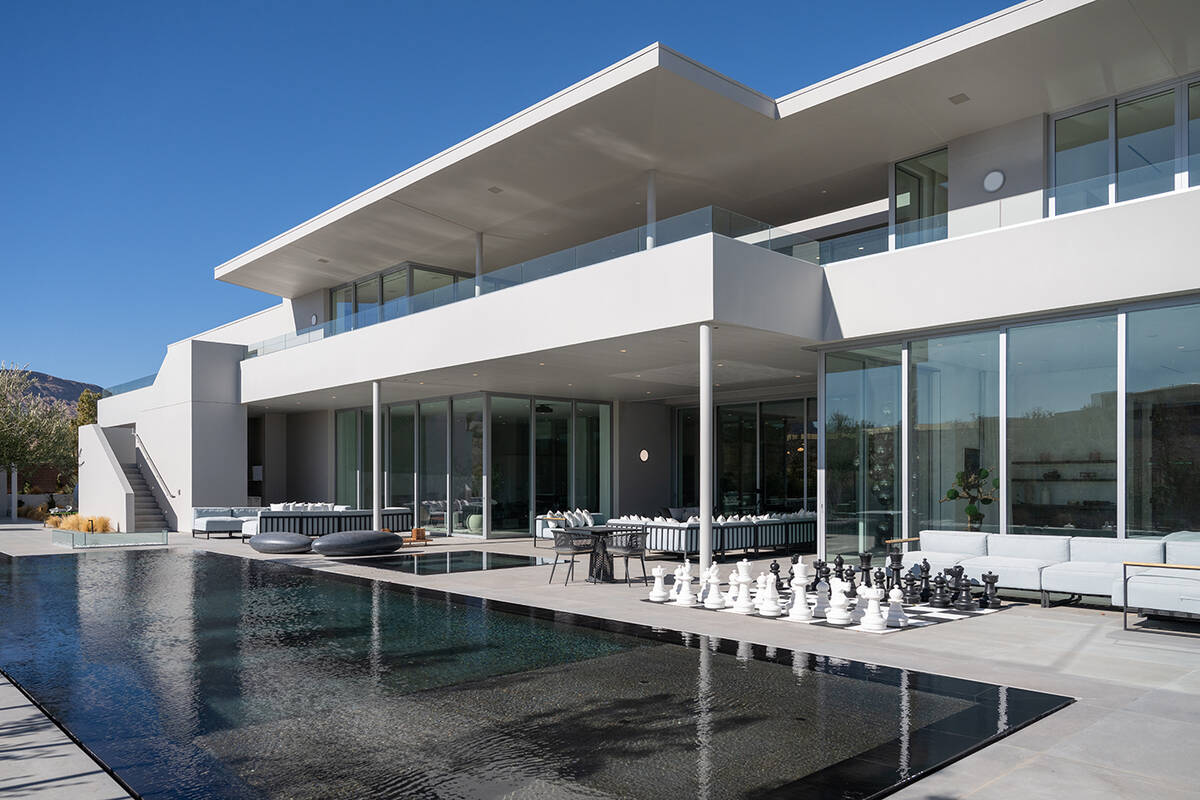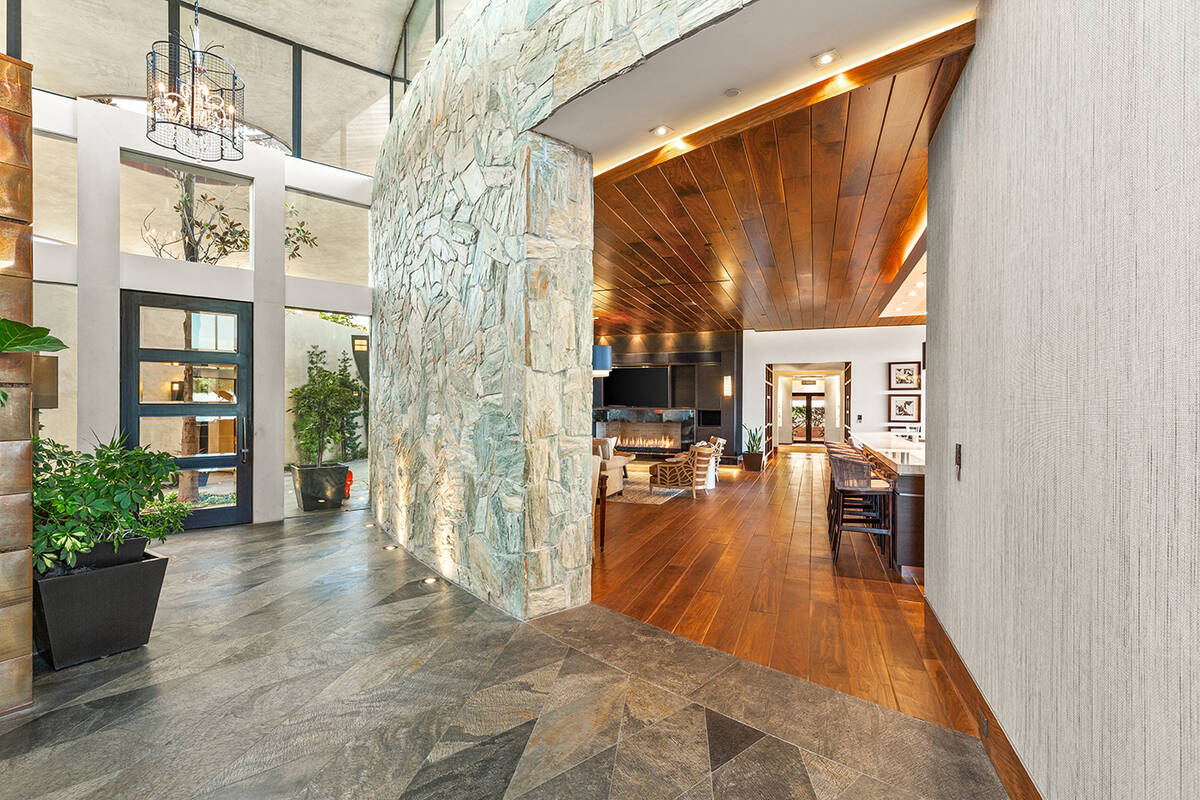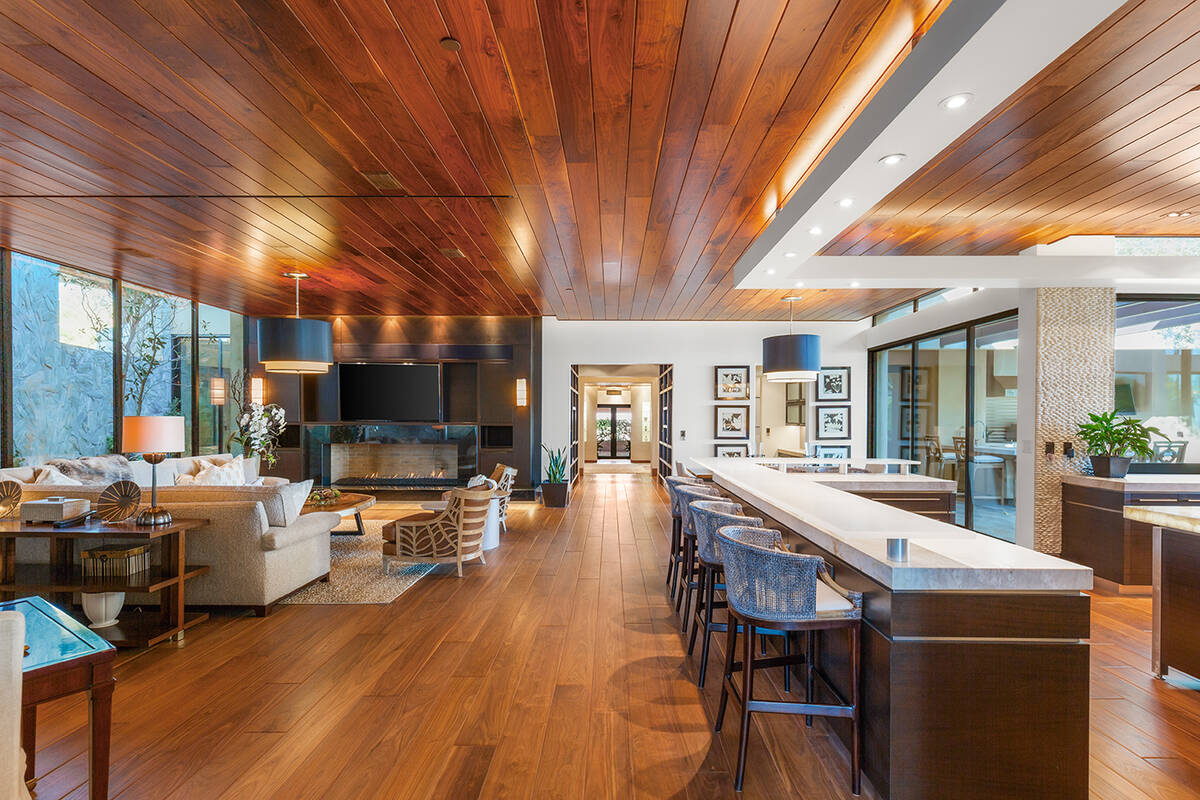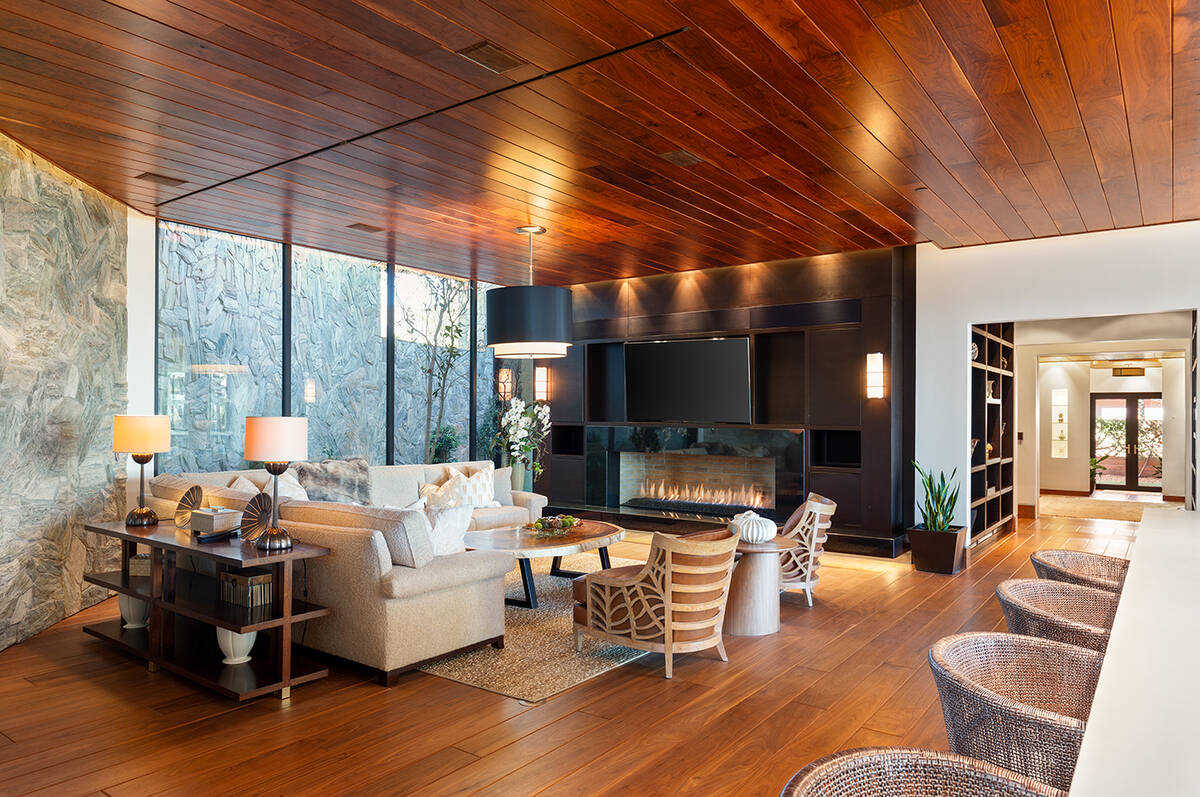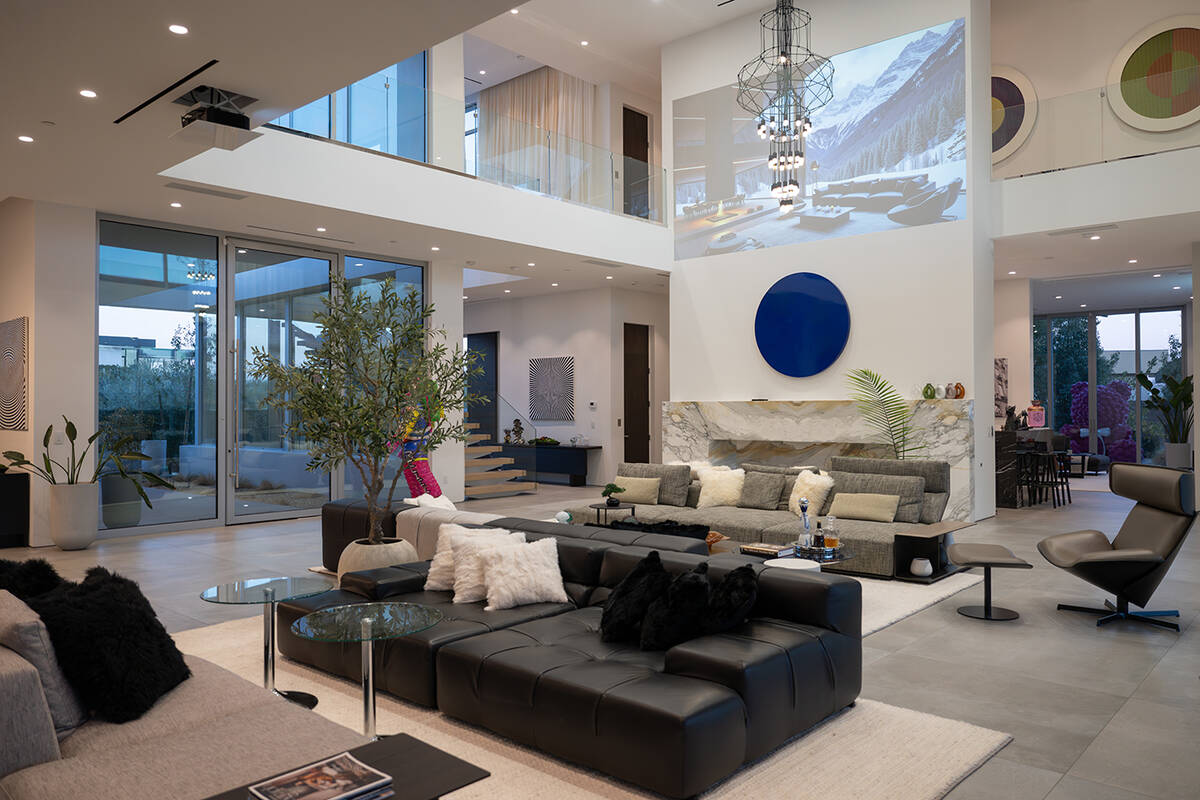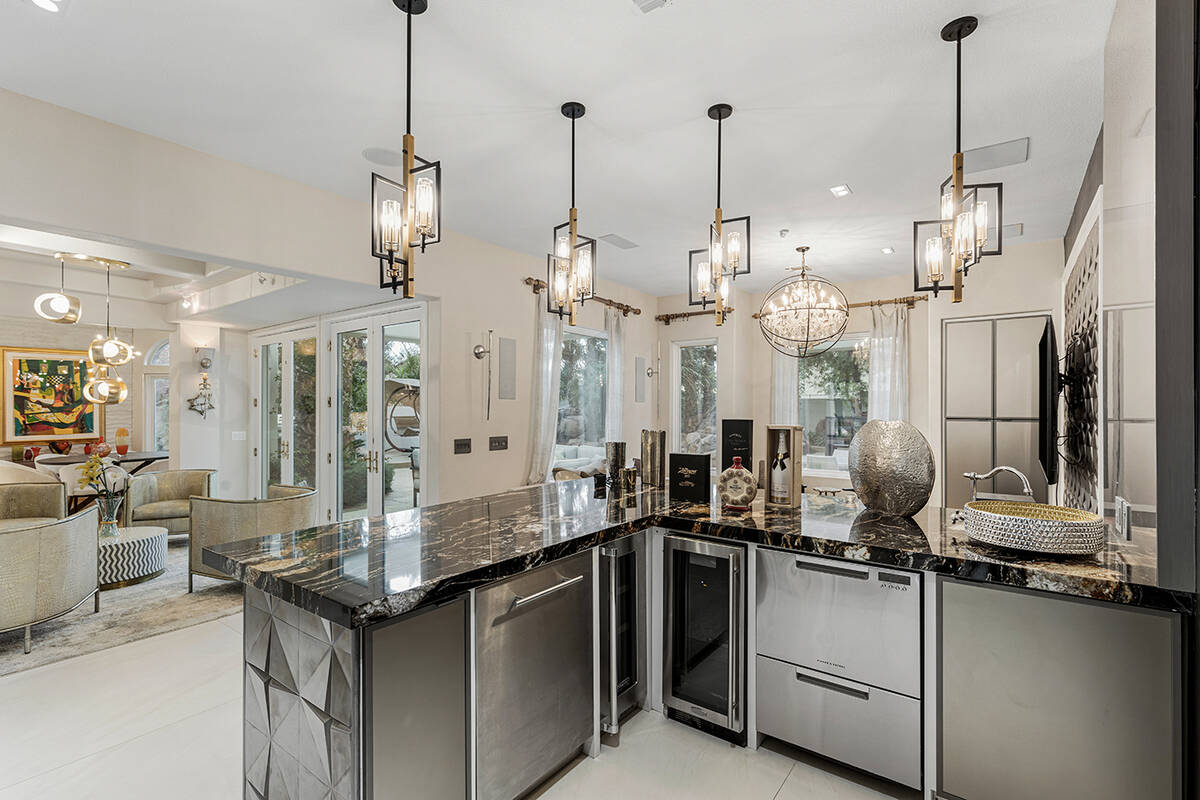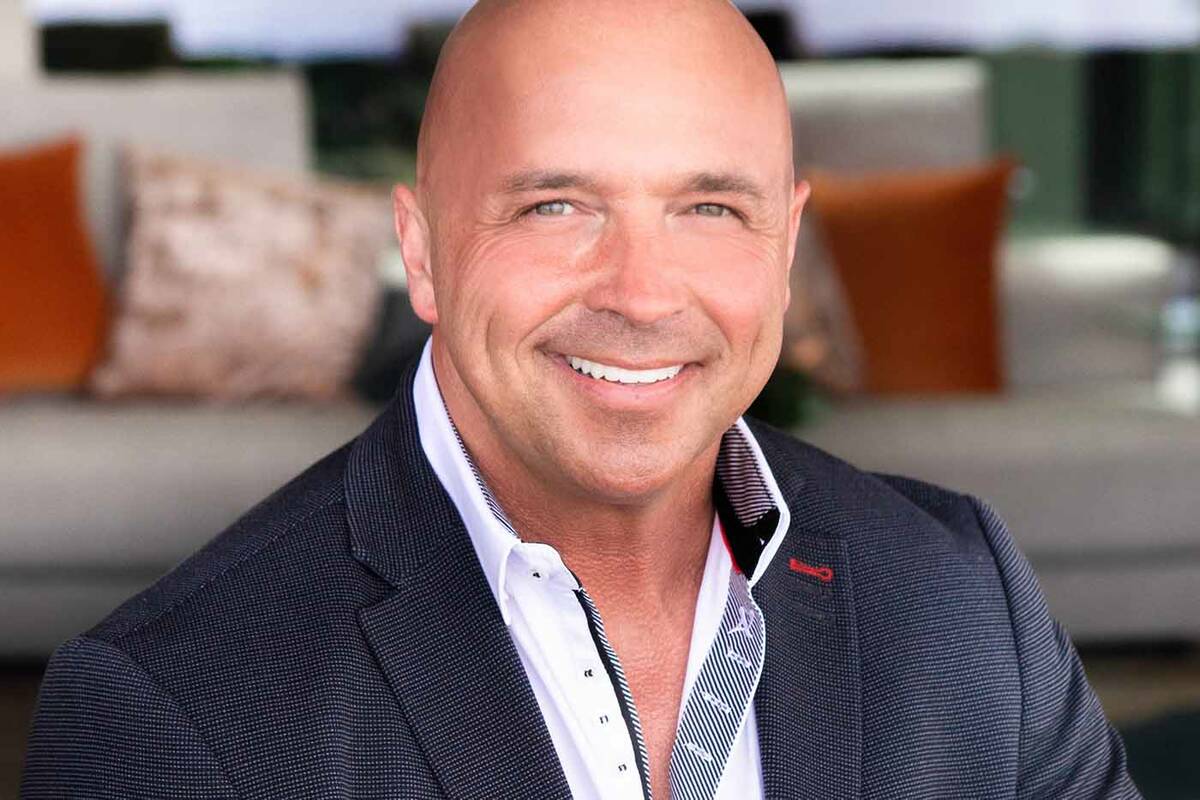The Strip has always been a master of reinvention. But lately, beyond the glow of the neon, another transformation is underway, and it’s redefining every aspect of local luxury real estate.
Now, in its “cosmopolitan era,” Las Vegas’ latest evolution has been fueled by a confluence of factors: Nevada’s favorable tax structure, a burgeoning arts, culture and culinary scene, a growing roster of professional sports teams, a new tech sector and year-round outdoor recreation that rivals the best adventure destinations in the West.
“Vegas has grown up,” said Ivan Sher, of IS Luxury.
The luxury housing market has followed suit, with sales of $1 million-plus properties more than doubling since 2020, according to Rob Jensen Co., which produces monthly real estate data reports. Sales of homes priced above $3 million increased by 40 percent year-over-year, including a $29.25 million deal at The Summit Club.
“Las Vegas is becoming a global luxury real estate destination,” said Kristen Routh-Silberman of Douglas Elliman.
The change in the local luxury real estate landscape has meant firms selling properties have had to respond by developing a new set of marketing tactics. Strategies must blend immersive experiences, social media engagement, and targeted digital campaigns, catering to a new generation of affluent buyers.
Changing face of luxury buyers
Luxury real estate buyers in Las Vegas may be skewing younger, according to some local Realtors. While previous generations of buyers who built wealth through traditional industries were typically older, today’s buyers include young millennials and older Gen Zs — people who started investing at a much younger age than earlier generations and in emerging technologies.
“AI and crypto are creating a new pool of wealth, and that audience is looking to Las Vegas for a primary residence or second home,” Routh-Silberman said.
Long overlooked by marketers, Generation X, born between 1965 and 1980, is now playing a significant role. Xers are in their peak earning years and are set to inherit about $30 trillion from their silent gen and baby boomer parents as part of the “Great Wealth Transfer.” As the “X Games generation,” they are driving trends by prioritizing outdoor recreation and wellness-inspired amenities.
Meanwhile, women are emerging as a growing force in the luxury market. Nationally, women own more than 15 percent of luxury properties, a trend reflected locally.
“We’re seeing more women making purchases independently,” said Darin Marques of the Darin Marques Group.
Today’s buyers are more tech-savvy and informed. People now ask more specific questions about building materials. “They want to know, ‘Are the windows thermal break windows? What kind of home automation system is the homeowner using?’” Marques said.
New marketing tactics
For local luxury real estate firms, staying ahead of the curve means more than inventory, but how they connect with buyers. Gone are the days when glossy brochures and standard listing photos could sell a multimillion-dollar home.
Selling luxury real estate in Las Vegas is also more than selling homes — it’s about selling the idea of what life can be. Firms leverage immersive experiences, influencer collaborations and digital-first marketing to capture buyers’ attention.
“We’re selling an experience,” said Rob Jensen of Rob Jensen Co.
Experiential selling
An example Jensen offered included an event featuring Las Vegas resident Alex Honnold, the professional rock climber and subject of the Oscar-winning documentary “Free Solo.” Held in a listing, guests could engage with the home casually while enjoying a conversation with an elite athlete. Jensen said experience like this help link luxury properties with aspirational lifestyles.
Sher takes a similar approach, holding intimate dinner parties at listings every quarter. He engages top local culinary talent to prepare a sit-down dinner that gives people a very literal taste of Las Vegas. “It’s very private, very relaxed,” he said. “People don’t expect it, and there’s no sales pitch.”
Collaborations with chefs who prepare gourmet meals in a listing’s state-of-the-art kitchen are one way to subtly showcase important amenities. When influencers are incorporated into the mix, they help generate buzz and broaden online reach.
Digital domination
With buyers spending increasing time on social media, luxury real estate firms have embraced high-production video content as a core marketing tool.
“A well-made video is more than just a walk-through; it’s a movie trailer for the life buyers could live in the home and community,” Jensen said.
Routh-Silberman leans into Instagram and other social platforms, crafting video campaigns that evoke emotion and highlight the exclusivity of Las Vegas properties. “I believe in the power of social media to sell and showcase luxury real estate,” she said.
Paid digital campaigns also play a pivotal role. By targeting prospective buyers through geofencing and AI-driven analytics, firms can serve up ads to high-net-worth individuals who may not yet have Las Vegas on their radar.
What luxury buyers want
The definition of luxury in Las Vegas has evolved. In the early 2000s, a $1 million home was considered high-end. Now, it’s merely an entry-level threshold. However, the concept is much more than price.
“Luxury is a combination of lifestyle, neighborhood and amenities that cater to people who want more than just a house,” Sher said. “They want an experience.”
That experience begins with the community. Guard-gated neighborhoods with security and privacy are in high demand, particularly among celebrities and executives. Features such as restaurants, wellness amenities and social programming are must-haves. Especially experience-based opportunities like hikes on nearby trails that help people access the lifestyle they’re after.
Wellness has become a key selling point that influences home amenities. Red light therapy rooms, wet and dry saunas, and dedicated yoga and massage rooms bring spa-like serenity into daily life. Primary bedroom closets must be more than big; they have to be designed to resemble luxury retail spaces, with glass front cases and LED-lit displays for accessories, built-in steamers and dedicated laundry units.
Outdoor amenities are also shifting. Pickleball courts have overtaken traditional tennis courts as a top request, complementing resort-style pools and minimalist landscaping that embraces the rugged beauty of the desert.
Sleek outdoor showers are also trending. More than a basic poolside spigot, they’re luxurious rinse spaces. Whether used after a hike or for a moonlit refresh, the experience is grounding and indulgent, and that’s the point.
Sustainability and smart home technology continue to be priorities. Buyers want high-efficiency irrigation systems, zoned cooling and automation platforms such as Crestron and Control4 that allow them to control lighting, temperature and entertainment with the touch of a button.
“Smart-home systems allow you to turn your music on, turn your hot tub on, and set your temperature — all from your phone at the click of a button,” Sher said.
The expectation for garages has changed. With many buyers coming from temperate climates, features like insulation and climate control are now expected. Some luxury properties even include 10-car subterranean garages.
New standard in service
Luxury buyers are entering the market more informed than ever, expecting real estate agents to act as more than salespeople.
“They come in with a deep understanding of a home’s features before they even set foot inside,” Sher said. “They may need insight into the neighborhood and advocacy during the process.”
The on-demand culture, fueled by platforms like Amazon and Instacart, has influenced expectations. Buyers want immediate access to properties, sometimes within minutes of inquiring.
“If they find a listing, they want to see it in 20 minutes,” said Marques, whose firm has developed a concierge service to ensure out-of-state buyers can experience the best of Las Vegas with minimal hassle.
The Las Vegas luxury real estate market shows no signs of slowing. Local industry leaders anticipate 2025 will be another record-setting year. “Optimism and confidence are driving people to spend money and invest in Las Vegas,” Sher said.

